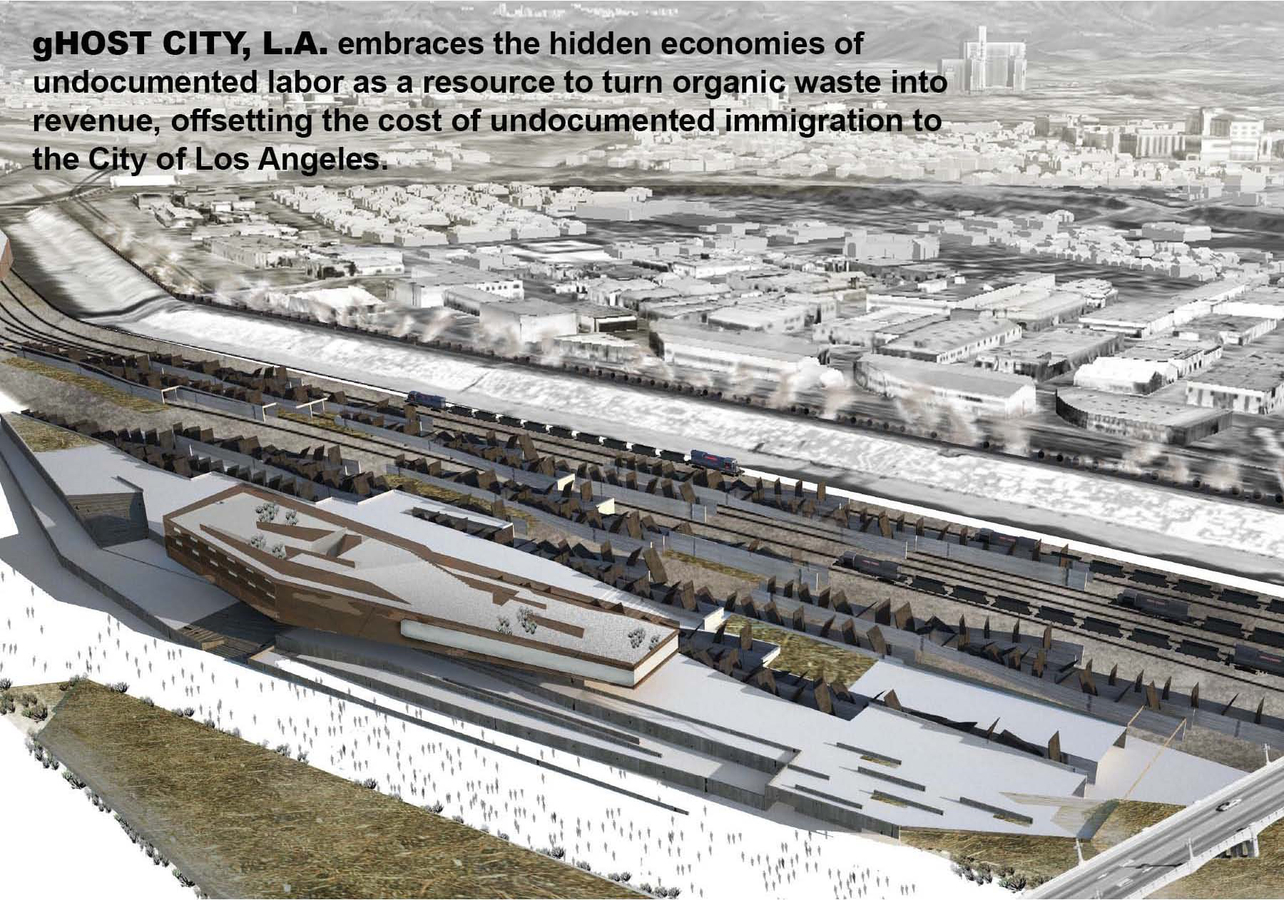

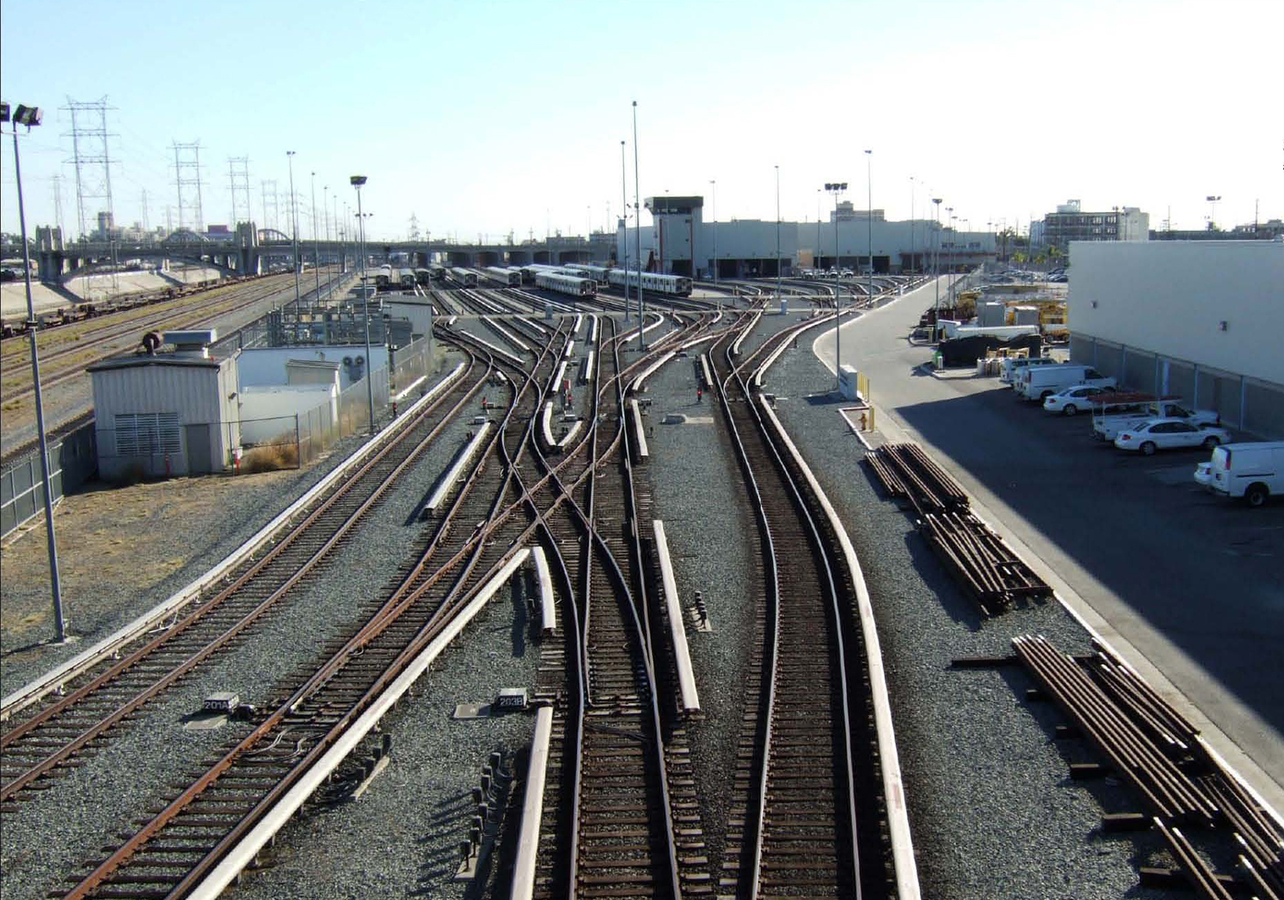

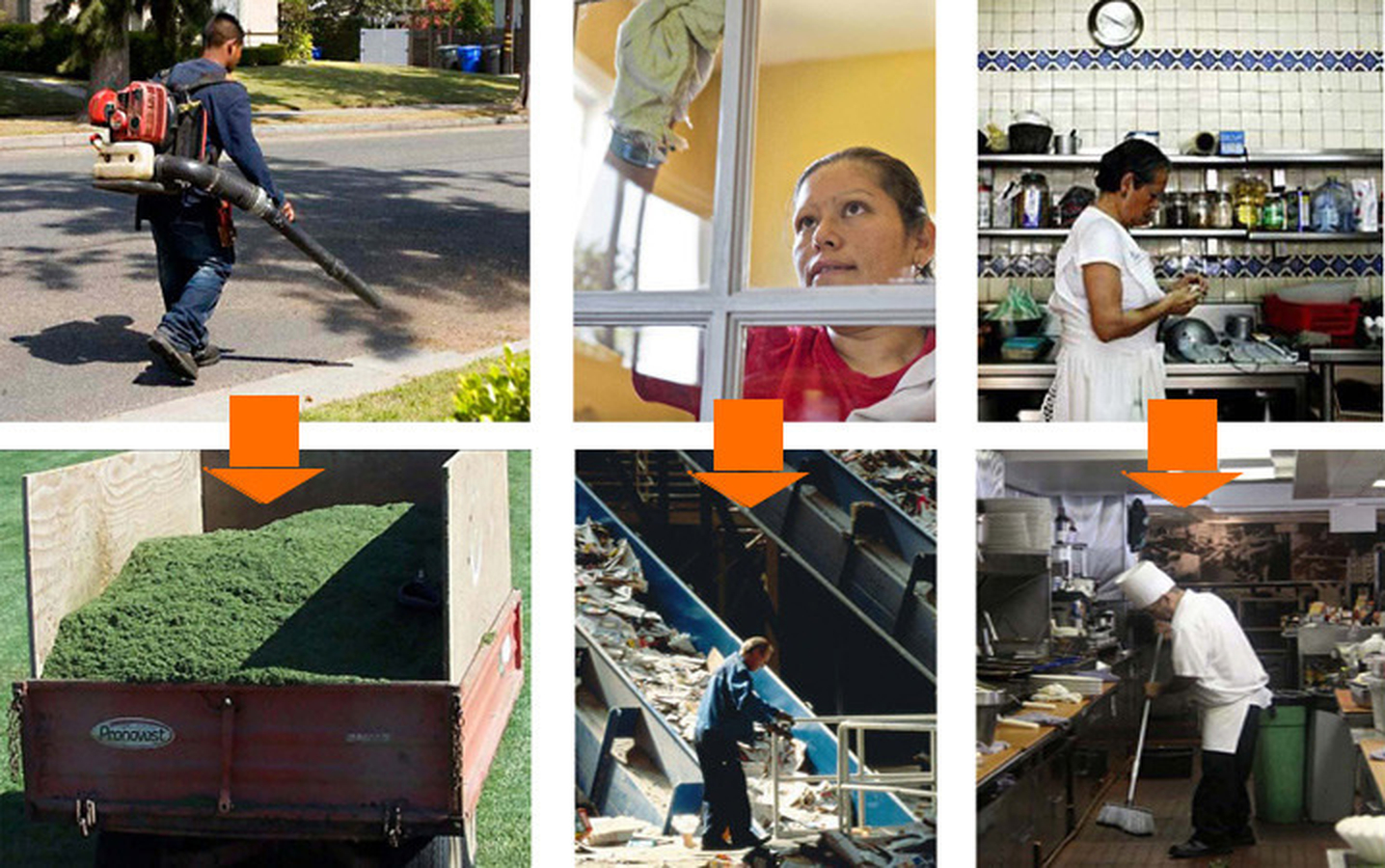
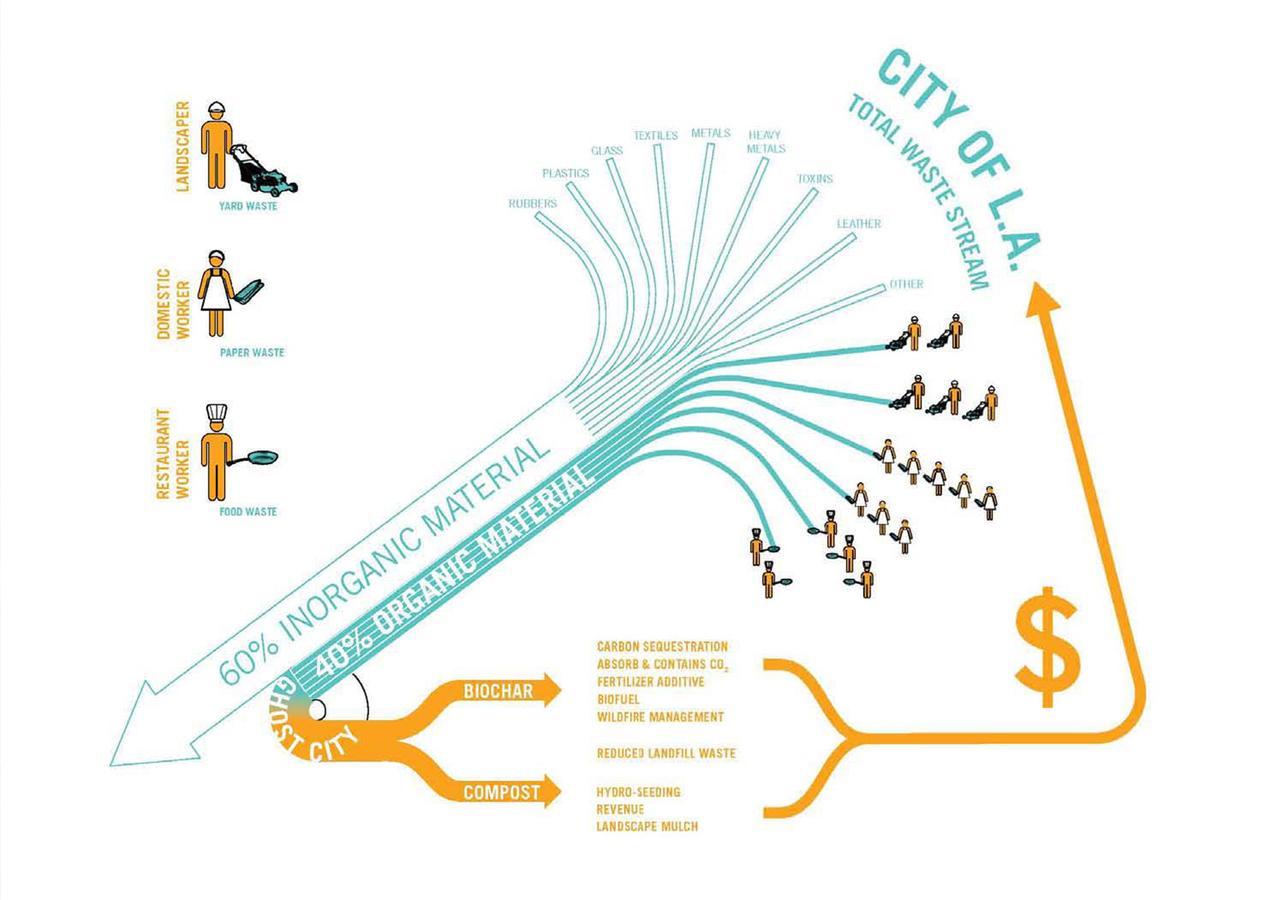

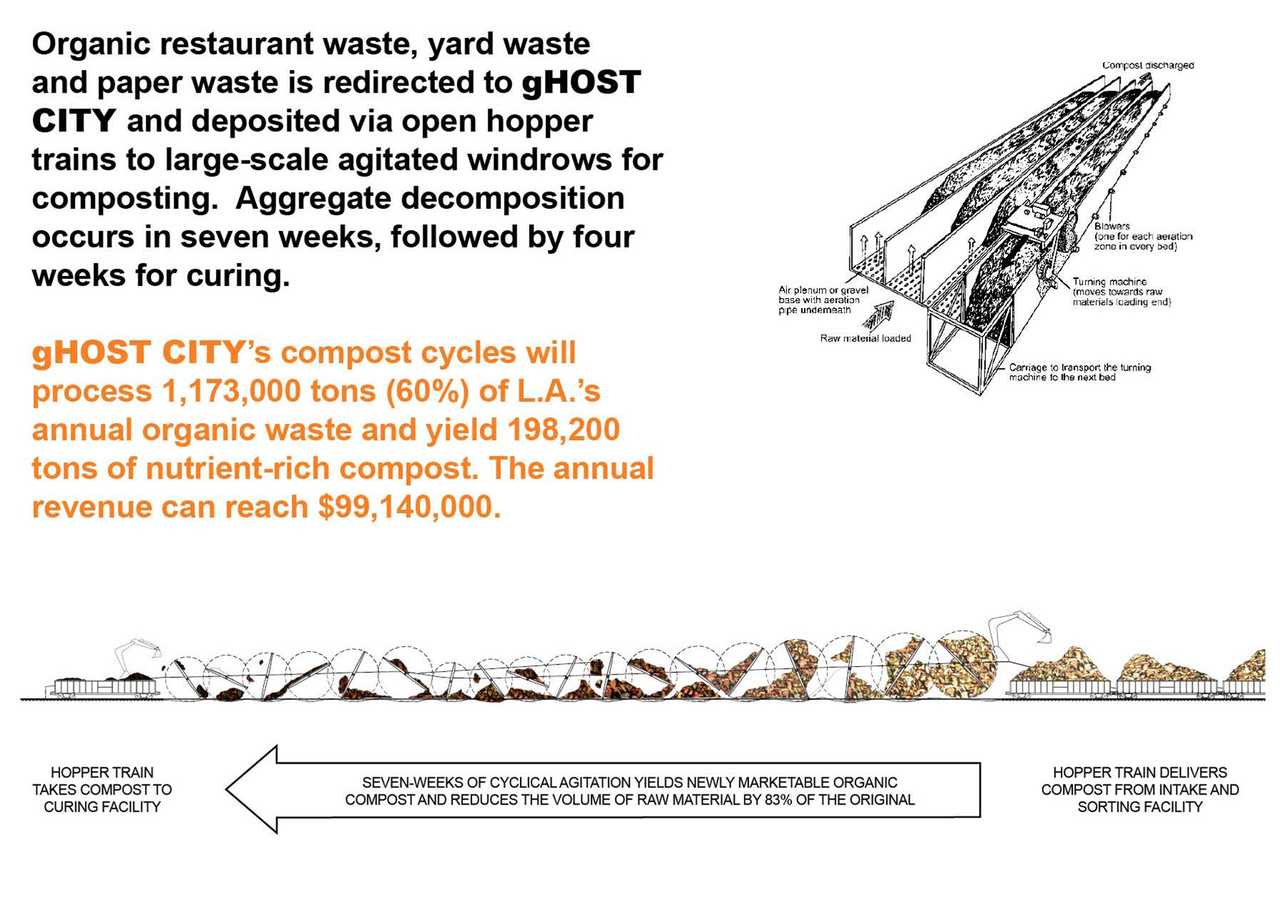
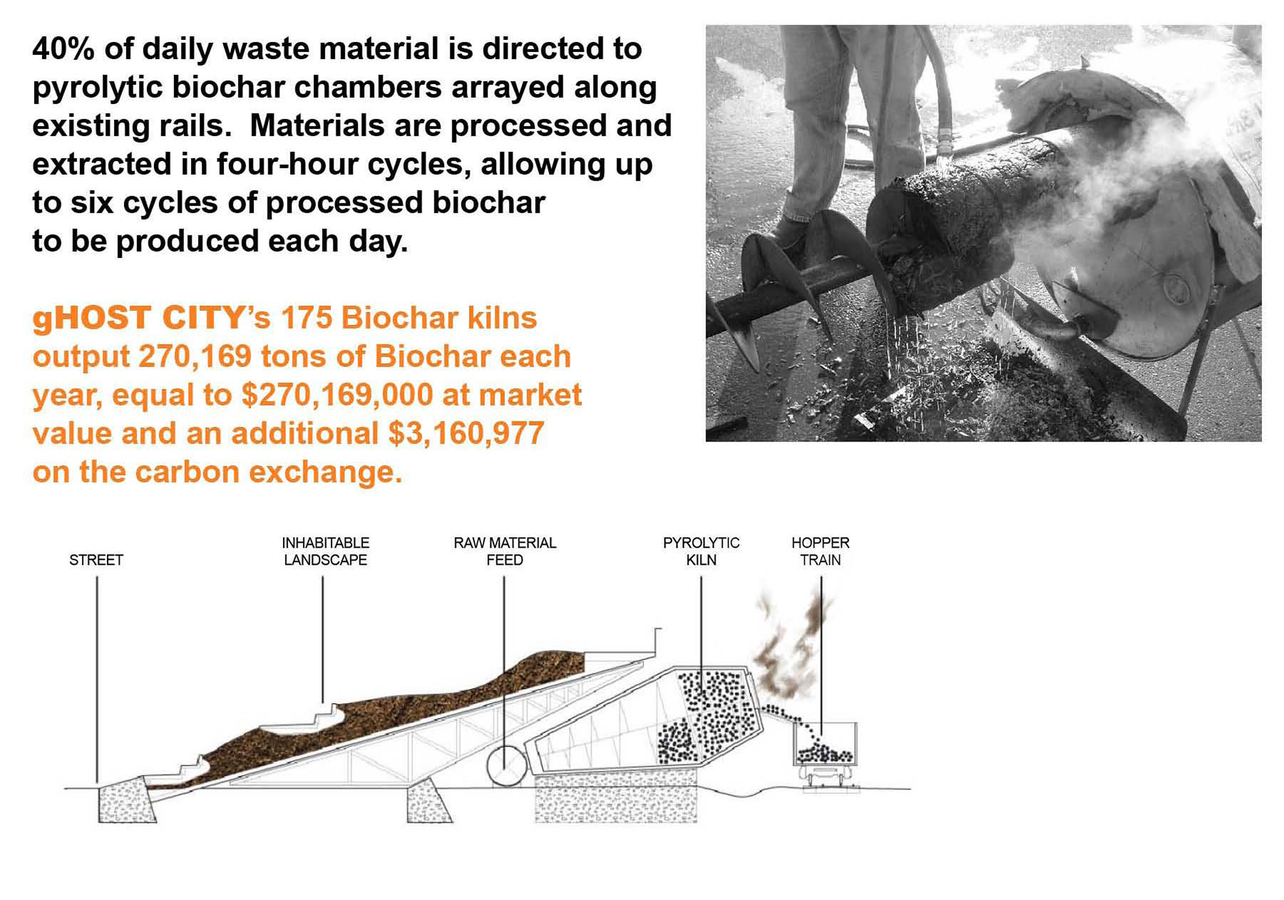


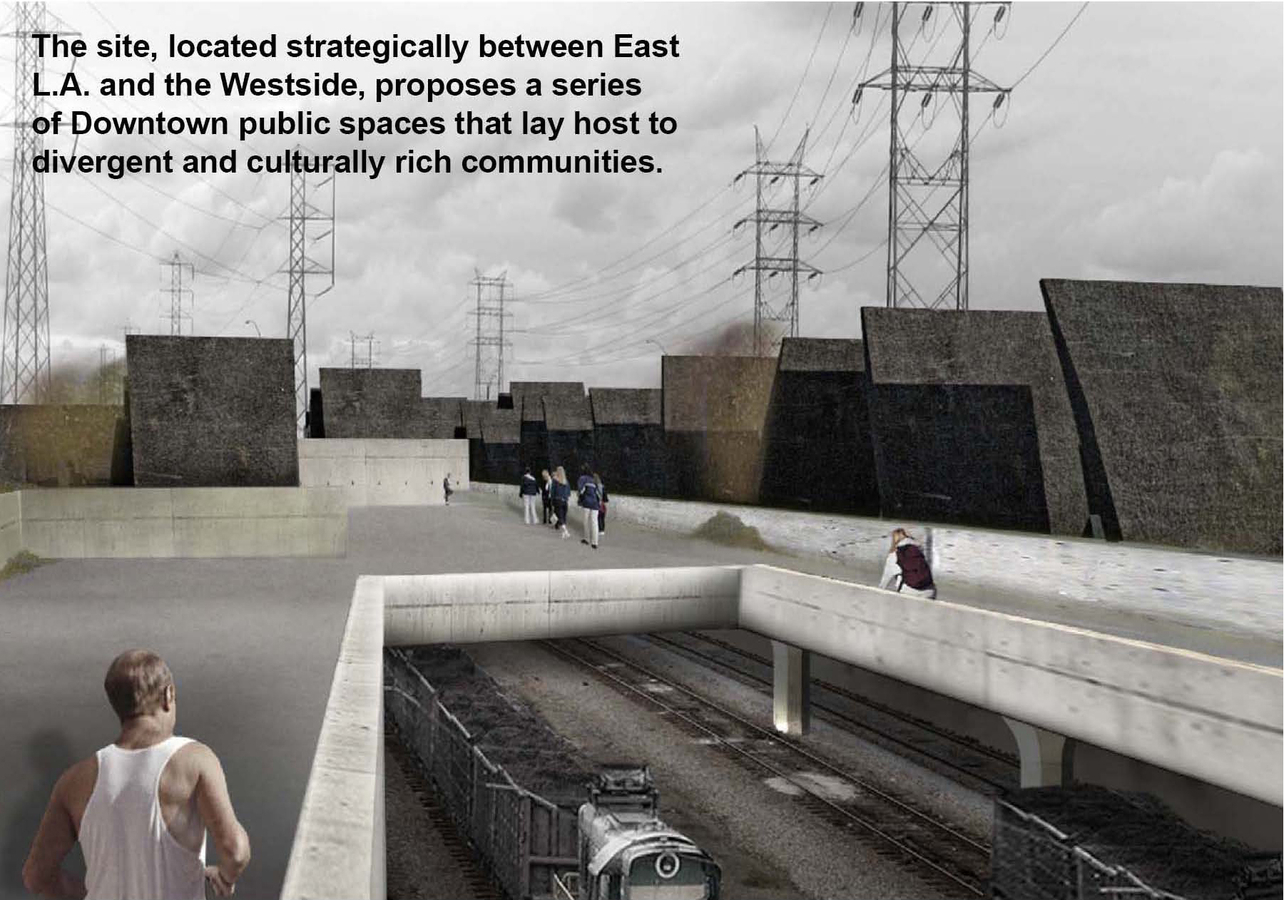


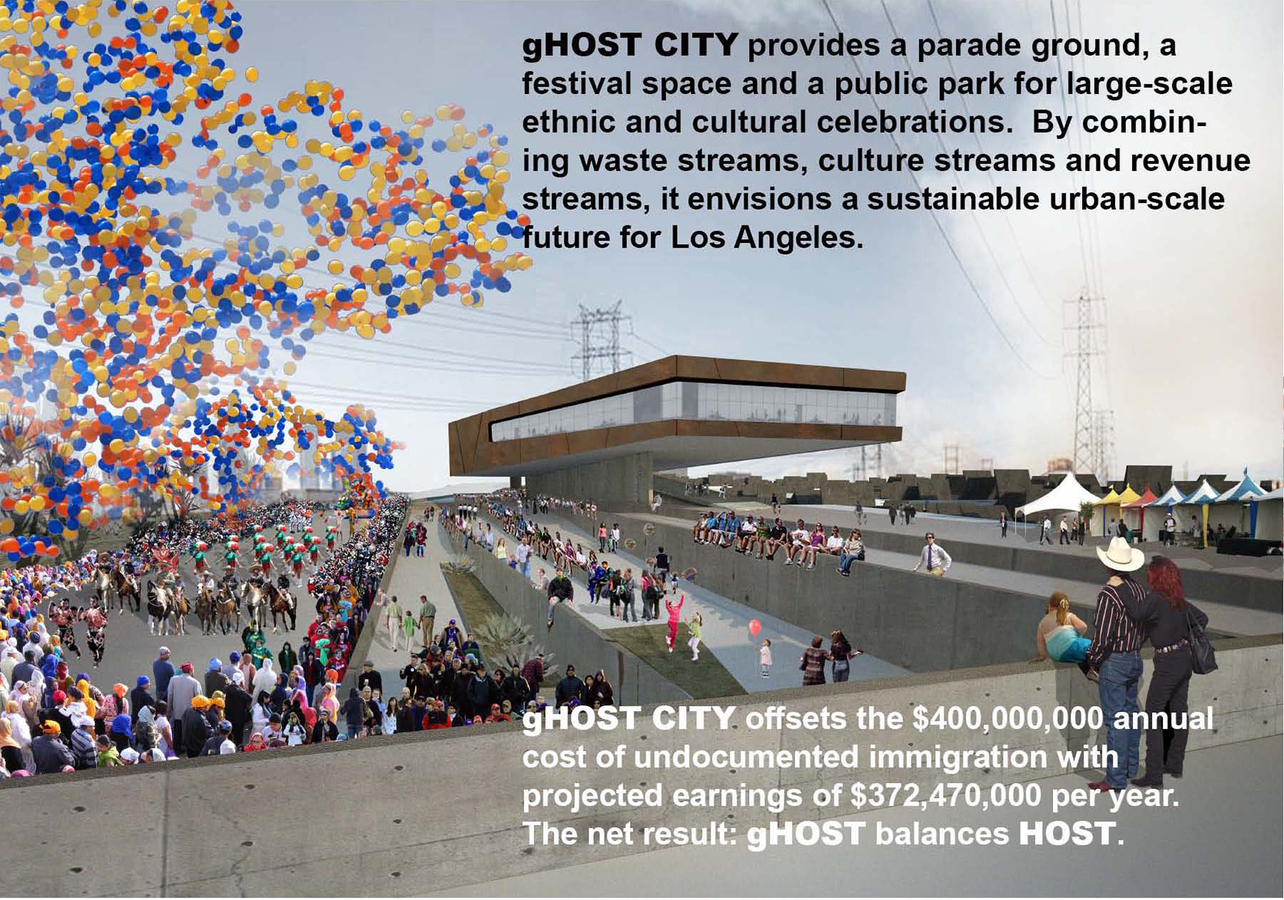
gHOST CITY, L.A.
LOS ANGELES, CA
Los Angeles is host to the largest undocumented immigrant community in the country. As a result, the city benefits from culturally rich urban experiences, but simultaneously inherits increased public and financial obligations.
gHOST CITY embraces the hidden economies of Los Angeles’ undocumented labor and immigrant communities as indispensible contributors to a future green infrastructure for the city. Existing informal economies and currently underserviced rail networks serve as structural mechanisms that address and offset the increasingly politicized financial costs incurred by the host City of Los Angeles.
Undocumented labor networks structure vibrant informal economies throughout the City of Los Angeles each day. Of the many informal economies that exist, this proposal engages three primary sectors and their requisite waste streams:
1. Residential landscaping: grass cuttings & yard waste
2. Domestic work: paper waste
3. Restaurant labor: organic food waste
WASTE STREAMS
The point-of-entry for waste into the gHOST CITY occurs at the southern area of the site where material is sorted and distributed into hopper trains. Once separated into yard waste, paper waste and organic food waste, the raw material is carried to individual composting bins at the re-tooled LACMTA railyards.
A system of large-scale Agitated Compost Windrows and Pyrolytic Biochar Chambers process this daily waste. After completing a seven-week turning cycle in the Windrows, waste is adequately decomposed and ready for a four-week curing period.
REVENUE STREAMS
Hopper trains transport the material north to the Compost Curing & Hydroseeding Facility where the soil is packaged and prepared for outside distribution. Nutrient-rich compost material is a beneficial landscape additive and is ubiquitous with landscaping supplies. When added to seed, it can be used for Hydro-seeding, an application commonly used for large-scale erosion control and freeway landscaping.
The benefits of Biochar are many. It contains high-value carbon sequestration, and when offset against the Chicago Carbon Exchange, this material possesses a measurable and high dollar value. Biochar is gaining popularity in agriculture to increase crop yield and a byproduct of Pyrolysis is bio-fuel, an alternative fuel source for diesel engines which reduces dependency on fossil fuels. Of particular usefulness to Los Angeles is its effectiveness in Wildfire Management Practices.
CULTURE STREAMS
Urban life in Los Angeles is defined geograhpically by its neighborhoods. As a result, communities tend to be focused on their local identities, which to outsiders often remains invisible. The program for gHOST CITY provides a public space for large scale ethnic and cultural celebrations. Many things can happen here. It is simultaneously a parade ground, a festival space and a park. Just as the industrial program of the site quantifies the large scale infrastructural value of immigrant labor, the public program values and promotes the well-being and sustainablility of cultural diversity:
gHOST CITY hosts Los Angeles.
PROJECT TEAM:
Mike Jacobs, Biayna Bogosian, Forrest Jessee, Ellee Lee, Se Yoon Park, Chad Smith, Momo Araki.
